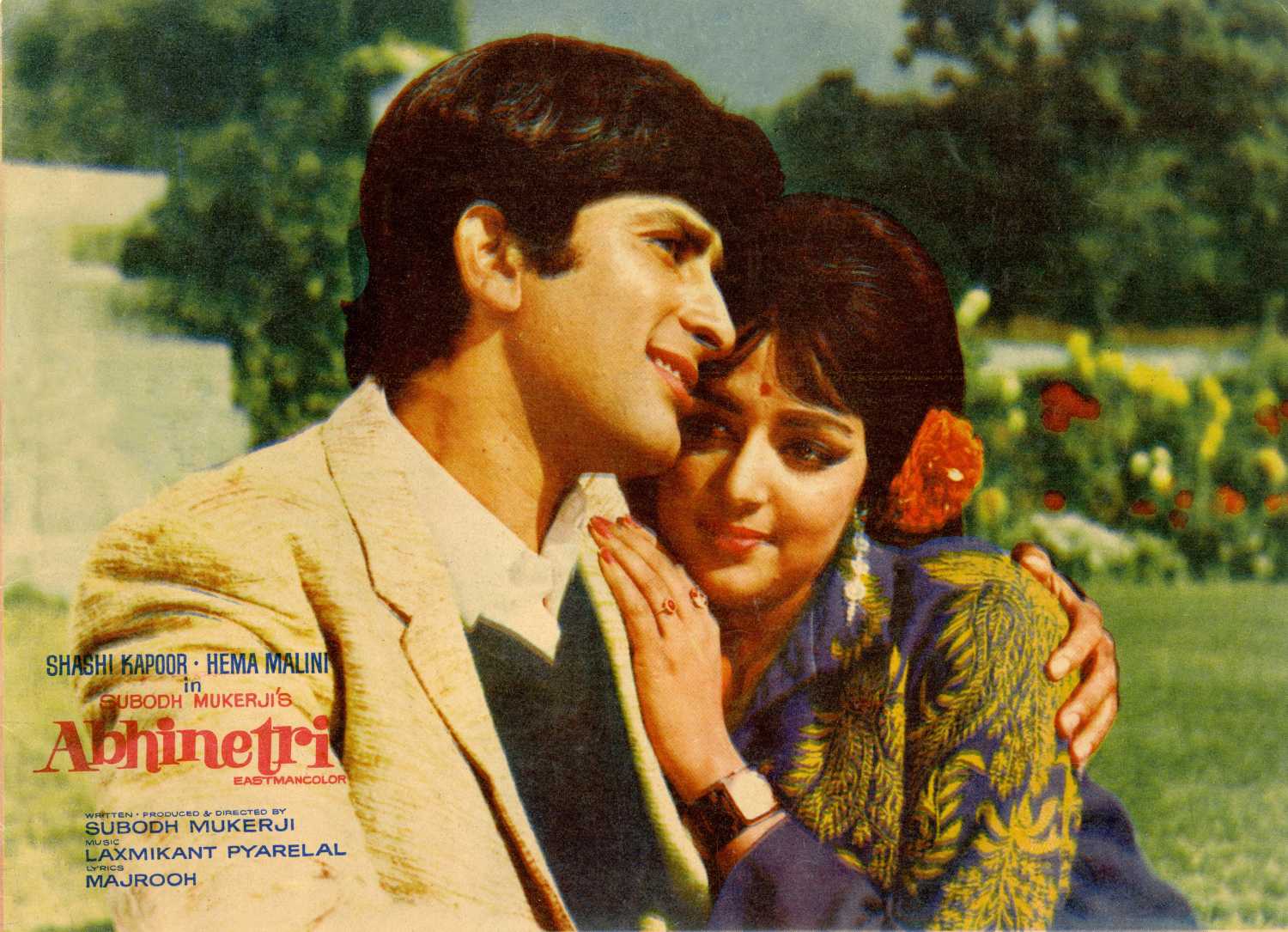Subodh Mukerji's film, starring Hema Malini and Shashi Kapoor, gives us a strong heroine but fails to follow through to the logical end of her subversion.
50 years of Abhinetri (1970): Feisty heroine sacrificed at the altar of a happy ending
New Delhi - 12 May 2020 7:30 IST


Sukhpreet Kahlon
Hindi films about women artistes generally explore a dilemma faced by them: to pursue their art or sacrifice it at the altar of domestic bliss. Subodh Mukerji’s Abhinetri (1970) sought similarly to explore the husband-wife relationship as a dancer falls in love with a scientist and must choose between her own professional aspirations and domesticity.
Anjana Devi or Anju (Hema Malini) is a popular stage dancer. She finds true joy in dancing and values her art so much that she is not ready to perform merely for the sake of money. A chance encounter brings her in touch with Shekhar (Shashi Kapoor), a scientist who is working to develop fertilizers. They meet, fall in love and get married.
Interestingly, Shekhar’s mother (Nirupa Roy) was a singer before she got married but sacrificed her art for her family. This is, of course, a portent, but things move along at an even pace as Anju stops her dance practice and performances after marriage.
However, when she does accept an assignment to help out her guru, Shekhar disapproves, citing the age-old values of 'respectability' and 'morality'. As the scientific temperament battles with an artistic one, the couple decide to separate. However, when Shekhar’s mother comes visiting, they pretend to be man and wife and put on their happy faces for her sake.
Like some other films that looked at career women and the resultant insecurities of their husbands, Abhinetri presents a duality in Shekhar, who enjoys his wife’s performances before marriage but does a volte-face after. He labels dancing in public “cheap and vulgar”, aligning it with Western sensibilities as opposed to the “izzat” (respectability) and “tehzeeb” (good manners) that Indian culture teaches.
The clash between Indian morality and Western modernity is a classic one, but Anju’s response is surprisingly feisty. She refuses to bow down to Shekhar’s demands and finds herself in the classic conundrum of having to choose between her dance and her home. In a big punch-the-air moment, she chooses the former!
Interestingly, throughout the film Anju is portrayed as a ‘good Indian woman’. She is a dutiful wife and daughter-in-law, takes care of her home and husband. Her only excess is desire. She wants her husband’s attention and pines for him to spend time with her. Her dance engages her and offers her fulfilment, which, of course, he does not understand. He only myopically sees his wife being the object of other men’s desire.
Despite Anju’s subversive response to Shekhar's demands, the film’s weak resolution is deeply disappointing as it shies away from addressing the real problem. Instead, it resorts to a ‘love conquers all’ kind of philosophy, where the couple come together in the end, their differences hastily brushed under the carpet.
It is, however, Hema Malini’s dance and acting that make for a compelling watch. She is mesmerizing in the dance sequences that allow her to show the range of her talent and training. She looks beautiful in stylish costumes designed by Bhanu Athaiya and commands the scenes with her presence.
Shashi Kapoor, too, is at his charming best, but appears a shade paler in front of Hema Malini. Nazima is excellent as the bubbly friend Ratna who pulls no punches in telling people exactly what she thinks of them.
The songs of the film were big hits with lyrics by Majrooh Sultanpuri and music by Laxmikant-Pyarelal. 'Sa Re Ga Ma Pa', 'O Ghata Sanwari' and 'Sajna O Sajna' are all memorable numbers.






